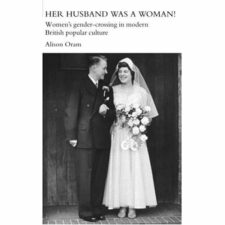Black history continues to discover new knowledge and generate new understanding. But today I want to celebrate a different kind of history, that which makes no bones about its invented characters, invented situations, invented scenes, yet which succeeds in telling the truth about some of the most tangled and difficult subjects possible.
US businesswoman Lalita Tademy gave up her high-flying career at Sun Microsystems because she had become obsessed with her family history, especially her family history under slavery; her female ancestors were calling her, haunting her, taking over her mind. She resigned from her job to turn herself into a full-time researcher and writer, and so produced Cane River, 2001, “a work of fiction deeply rooted in years of research, historical fact, and family lore.” This story, set in Louisiana and beginning early in the eighteenth century, is illustrated with reproductions of actual texts and pictures from the archives: a bill of sale for many slaves starting with a seventy-year-old, “health not guaranteed”; a newspaper piece from 1907 condemning “The Sin of Miscegenation”. The latter was written in response to the death of a white man with a childless white wife and a coloured, previous wife and family, and written in the belief that the man had committed suicide from remorse at the “sin” named in the headline. In fact he was murdered to prevent his finding a way of leaving his estate to his children whom current Southern law rendered illegitimate. The man and his repudiated wife, Emily, were Tadema’s great-grandparents.
In the basically-true story she has recreated, “black” women of generation after generation draw the eyes of white masters and are taken to their beds. In generation after generation a mixed-race girl, lighter-skinned than her mother, grows up to meet with some variation of the same experience. The white master may be a rapist; he may take the woman without compunction from a black lover; he may himself be deeply in love. But in the latter case he cannot withstand the social pressure to betray, in the end, the black mother of his children. With each variation on the repeated theme, a woman once generous and naturally loving – Suzette, Philomene, Emily — becomes scarred and toughened, exchanging her generosity for strength and endurance.
The Canadian novelist Lawrence Hill took the title for The Book of Negroes from an actual document, a record of black people shipped to Nova Scotia by the British Navy at the end of the American War of Independence, an alleged fulfilment of the promise of freedom held out to those who aided the Loyalist side. The list tables name, sex, age, and brief description in terms of fitness for work; it reads more like a list of slaves regarded as property than as one of free individuals. Because of the taboos attaching to certain words in the USA, the novel was published there (and in Australasia) as Someone Knows My Name, which, as the Guardian review put it, “reworks James Baldwin’s famous phrase into a deeply insipid title.”
To the racist eighteenth-century navy’s egregious historical document Hill tethers his fictionalised Black history of actual broken promises. His female narrator, Aminata Diallo, is already very old when, in London in 1802, she begins at the behest of English abolitionists to narrate the story of her life, which by a series of remarkable coincidences takes in almost every headline event in Black history that happened during her lifetime. As a mere child she lives through a slavers’ raid on her African village, the long forced march to the coast, and the horrors of the Middle Passage. Her great advantage is that she has learned from her mother the art of helping women in childbirth. She works with a doctor on the slave ship, and learns for the first time how spontaneous kindness in white people can come loaded with expectation (of gratitude or sexual favours or both) and how it can fail to be supported by any sense of natural justice or fairness.
She works for a brutal plantation owner, then for a Quaker who in principle disapproves of slavery, but in practice is quite unable to withstand its effect on his character or behaviour. Working for him, she adds writing and keeping accounts to her skill set. She observes how black people’s quality of life plunges during the War of Independence; she applies for passage to Nova Scotia and is employed to write her name, and the names of many others, into the original Book of Negroes. The Promised Land offered to these black loyalist settlers turns out to be not only unimaginably harsh in its climate but also without any kind of support, tools, or food supplies. It is furthermore already a hotbed of violent racist persecution. (A website at http://blackloyalist.com/canadiandigitalcollection/index.htm offers a transcription of the original list, with details and a map of the black settlements which were placed, apparently deliberately, on less desirable land in Nova Scotia close to white communities to which they could supply labour.) Therefore Aminata chooses to move on (having been separated by war and betrayal from the love of her life, all too briefly her husband) as one of the Black Nova Scotians who chose the fire over the frying-pan: chose to cross the ocean again in the 1790s to replace the failed 1780s colony in Sierra Leone with a new attempt. Orlando says of this venture: “Subsequent treatment of the black settlers confirmed the worst suspicions they could have entertained”.
In The Long Song, Black British novelist Andrea Levy moved decisively from writing about her own or her parents’ generation to the history of nineteenth-century Jamaica. Her narrator, Miss July, is born of her gigantic black mother’s rape by a white overseer. The rape is presented as barely traumatic, almost trivial, though the woman’s enduring rage against her rapist surfaces more than once to precipitate key events in the story. Where Tademy writes of the sexual exploitation of black women, the thwarted ambitions of part-white girls, where Hill writes of the overt cruelty and two-faced exploitation visited on a black girl (later a woman) by mainly white people out for their own advantage, Levy writes of a mixed-race girl (later a woman) who is humanly self-seeking and blithely politically incorrect: “lippy, competitive, and unquenchable.” July enjoys being a pet of the white mistress who has wrenched her away from her mother; she remains emotionally loyal to her mistress to the end, even while despising her, even after her white lover has married that mistress as a means to maintain his covert relationship with July.
Towards the end of the life her rejected black son rescues the ageing July from near-starvation. He later persuades her to tell the story of her life (in which he intervenes from time to time, trying vainly to render her less raucous and indelicate). When she reaches the episode of rescue she refashions it, trying on a version in which she was running a little business when reunited with her son, enjoying a modest worldly success. “July’s tale has the happiest of endings—and you may take my word upon it.” Thomas, says the Orlando entry on Levy, “first stares aghast at this untruth, then laughs at it. . . . Now he makes her embark on the true ending: how she was starving, and in court for stealing a chicken, when he saw her again after forty years. Thus compelled, she resumes her tale by confiding: “it was, in-matter-of-fact, two stolen fowls. And you may take my word upon it.” Miss July as a character is unpredictable, unreliable, and full of life. Just as clearly as the heroines of Lalita Tademy’s and Lawrence Hill’s, she proves that a work of fiction can be unequalled as a history of states of mind and of the way they are shaped by events and go on to shape events in their turn.
This information is provided by Dr Isobel Grundy, University of Alberta, and comes from Orlando: Women’s Writing in the British Isles from the Beginnings to the Present, Cambridge University Press, by subscription: see http://orlando.cambridge.org.


1 thought on “Black History Month: History in Fiction”
Comments are closed.